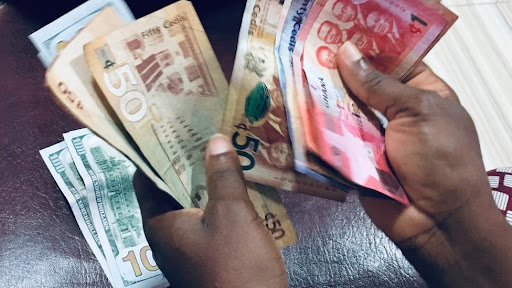The Debate on the Recent Strength of the Ghana Cedis Against the US Dollar: A Macroeconomics Perspective.

In recent time, Ghana’s currency has gained some strength against the major world trading currencies (US Dollar, Pounds and Euros). I want to objectively delve into the undying macroeconomic factors that could be contributing to this development, consisting of Bank of Ghana’s (BoG) interventions, Commodity Market Dynamics, Fiscal policies and Investor Sentiments. The sustainability of the Cedi’s strength and potential risk will also be explored.
NB: I will do this as a student of Finance and not a politician.
Introduction:
The struggle of the Cedi is a common knowledge. Traditionally, the Cedi has been entwined with challenges in sustaining stability against major currencies, especially against the USD. The NPP government handed over a GH₡14.75 to a US$1 exchange rate as at closed of 7th January 2025. In a short while, the Cedi remained unstable, rosed to GH₡15.52 at buying and selling at 15.537 with a mid-rate of 15.530 for interbank rates as of 2nd April 2025. However, for the past one month, the Cedi remains stable and recent data indicates a strengthening of the Cedi with the exchange rate improving and now selling at 13.2066 with a mid-rate of 13.2000 for a Dollar as of 8th May 2025. Multifaceted factors can be said to be the cause of the Cedi’s strength.
- Bank of Ghana (BoG) Interventions.
In theory, when Central Bank has adequate Forex reserves, it can support its currency through market interventions by injecting more foreign currency, i.e. USD into the system to control speculative pressure on the local currency.
In practice, BoG in March 2025 as a strategy, injected US$264 into the Forex market to bolster liquidity and in effect support the Ghanaian Cedi. This is a proactive measure and is capable of curbing speculative pressure and promoting market confidence. We cannot overlook this intervention in the current strength of the cedi.
- Commodity Market Dynamics:
It is stated in the books that a trade surplus (more exports than imports) will strengthen the local currency while a trade deficit (more imports than exports) leads to more demand for the dollar, which weakens the local currency. Practically, the erstwhile NPP administration recorded the highest trade surplus in the West African Sub-region with GH₡44.7billion, thus $4.1bilion approximately as of 31st December 2024. Data as of 31st March 2025 suggests that this figure surged from $4.1billion to $4.3 billion trade surplus in February 2025. Ghana’s economy is significantly driven by commodity exports, particularly Gold and Cocoa. Gold has recorded a surge in global prices reaching approximately US$3,227 per ounce, this has largely impacted Ghana’s export earnings. In April 2025, Gold Exports reached an unprecedented record high of $897.6 million. This is said to be the highest monthly value in two years.
Automatically, this increase in foreign exchange inflows has a direct strong relationship with the strength or appreciation of the Cedi.
Credit to the Gold for Oil policy for accumulating adequate gold reserves and kudos to Goldbod for exporting more gold to improve our country’s balance of payments.
You can only benefit from an external factor like the US trade war when your fundamentals are favorable and seemingly strong.
- Investor Confidence and Credit Rating
It is said that “goodwill is the mightiest practical force in the universe”. President John Mahama won the 2024 general elections on a very strong goodwill. Many were those who lost confidence in the NPP administration who could hoard the USD which will eventually weaken the Cedi as experienced. Following the successful restructuring of Ghana’s Eurobond debt in 2024 and later credit rating improvements by Fitch and Moody’s, investor confidence has been enhanced. A favorable outlook and portfolio inflows support the Cedi strength.
Potential Risk:
In all this, there is a potential risk. It is copiously obvious that the current strength of the cedi largely depends on commodity exports. Gold and cocoa are said to be the driving forces for our trade surplus. The risk is commodity price volatility. Any unfavorable external economic shocks will adversely affect the positive gains.
Sustainability Measure:
Time and the advanced economies have proven that the only sustainable measure to have a stable local currency is ensuring fiscal discipline and enhancing productivity. We must produce more and consume more of our local produce we shall continue to have stronger Cedi. Simple!
Conclusion:
Per the analysis above, it is safe for one to conclude that the current strength of the Ghanaian Cedi is because of BoG’s monetary policy, favorable commodity prices and improved investor confidence. To sustain this gain, the government must be committed to economic reforms and proactive measures to mitigate potential risks.
RUFAI ALHASSAN ABDULAI
DBS, HND, BBA, MSc. Finance and Investment.




